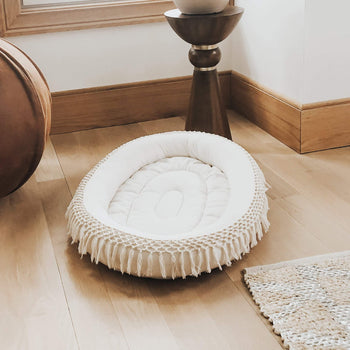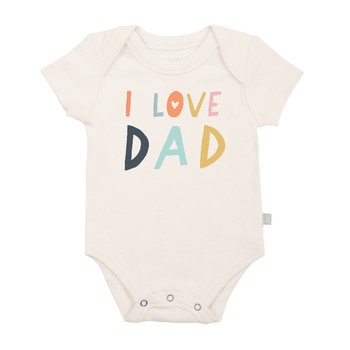In the world of parenting, there's nothing quite as infectious as the sound of a baby's laughter or as alarming as the sight of your little one's hiccups.
At times of dire need like this, knowing how to get rid of baby hiccups can be crucial. Even if you’re flustered and do not know your next step, allow us to help you through the cute hiccups!
While baby hiccups are generally harmless, understanding why they occur and how to address them can give parents the peace of mind they crave. So, let's delve into baby hiccups 101 - their causes, implications, and effective remedies.
Understanding Baby Hiccups
Baby hiccuping is a common phenomenon. The hiccups are little jerks of the diaphragm – a muscle situated under the lungs, responsible for aiding in breathing.
- Hiccups occur when the diaphragm experiences sudden contractions
- Babies hiccup even while still in the womb
- Baby hiccups are usually not a cause for concern
Although this is the general understanding behind baby hiccups, some quirky science facts are behind it. Without any further ado, let’s learn how to identify the causes and go behind solving the baby hiccups.
The Quirky Science Behind Baby Hiccups
Delving into the science of baby hiccups can be fascinating. This bodily function is a part of neuromuscular development, and according to some researchers, it might play a role in the baby's brain maturation.
Each hiccup could be a tiny lesson in breathing control, a critical aspect of the baby's growth process. While we're far from fully understanding the role of hiccups in a baby's development, these small spasms offer a peek into the amazing intricacies of infant growth.
So, the next time your baby hiccups, remember it could be a sign of their brain learning and developing, making each hiccup a special moment in their early life.
Identifying the Causes of Baby Hiccups
The causes of baby hiccups are usually related to the digestive process and the immature nervous system.
- Overfeeding or eating too quickly may trigger hiccups
- Swallowing air during feeding can lead to hiccups
- A sudden change in stomach temperature, like when a baby drinks cold and then a warm liquid, can cause hiccups.
You can always tip-toe around your baby regarding the feeding times and all other hiccup causes; there can truly never be a full-proof solution. So, get on the bandwagon of knowing how to comfort your baby when the right time approaches.
Implications of Baby Hiccups:
While hiccups in babies are generally harmless, recurrent or prolonged hiccups can occasionally indicate a more severe condition.
- Regular hiccups are part of the baby's development and maturation process
- Prolonged hiccups might be a sign of gastroesophageal reflux in babies
- If hiccups are accompanied by other worrisome symptoms such as coughing, irritability, or vomiting, consult a pediatrician
If your baby is getting a gag reflex from the hiccups, visit a doctor immediately.
Comforting Your Baby During Hiccups
While baby hiccups are usually harmless, they can sometimes cause minor discomfort to your little one. Using gentle, soothing techniques can often help. Rocking your baby or providing a pacifier may offer comfort and could stop hiccups.
A gentle back rub can also be calming during a bout of hiccups. Remember, your calm demeanor can reassure your baby and make them feel secure.
Ultimately, being there for your little one during these moments can turn a hiccup session into a bonding experience as you navigate the fascinating journey of parenthood together.
Effective Remedies for Baby Hiccups
While baby hiccups aren't usually a cause for alarm, parents can take a few steps to minimize their occurrence. This can ensure your little one is comfortable and hiccup-free.
- Feeding your baby in a calm, quiet environment can prevent them from gulping air, a common cause of hiccups.
- Ensuring regular burping sessions during and after feeding helps to eliminate swallowed air, reducing the chances of hiccups.
- Changing your baby's position or gently rocking them can distract them from hiccups and may often result in the cessation of hiccups.
Although the remedies can take some time to work, be patient with your little one and it’ll go away in no time.
Maintaining Good Feeding Practices
Adhering to good feeding practices is one of the most effective ways to avoid baby hiccups. This is beneficial for preventing hiccups and ensures good overall digestive health in your baby.
- Avoid rushing through feedings; allow your baby to eat comfortably.
- If you're bottle-feeding, ensure the nipple hole isn't too large, which can cause your baby to gulp food too quickly.
- Keep your baby upright during feeding; this can help prevent them from swallowing too much air.
Understanding the Role of Gastroesophageal Reflux (GER)
Gastroesophageal Reflux (GER), where the stomach contents are regurgitated into the esophagus, is a common condition in infants. In some cases, frequent hiccups can be a symptom of GER.
GER can cause frequent hiccups and symptoms like spit-up, irritability, and poor feeding.
If you suspect GER, make sure to consult with your pediatrician.
There are effective treatments available for managing this condition. Elevating your baby’s head during and after feeds can often help manage GER and, thus, reduce hiccups.
When to Seek Medical Advice For Baby Hiccups
While most baby hiccups are normal, knowing when to seek medical advice is essential.
- If your baby's hiccups are accompanied by other symptoms like refusal to eat, vomiting, or a behavior change, it's best to consult a pediatrician.
- Regular, prolonged hiccups could indicate an underlying issue needing attention.
- Always trust your instincts. If something doesn't feel right, seeking medical advice and having peace of mind is better.
Conclusion:
Navigating through your little one's hiccups can be made easier by understanding the causes and remedies. Remember, these hiccups are mostly part of the normal developmental process.
However, knowing the signs that might warrant a pediatrician's consultation is equally crucial. As a parent, your instinct, coupled with informed knowledge, is the best tool for ensuring the comfort and well-being of your baby. Let 'Baby Hiccups 101' be your go-to guide for any hiccup-related worries!




















